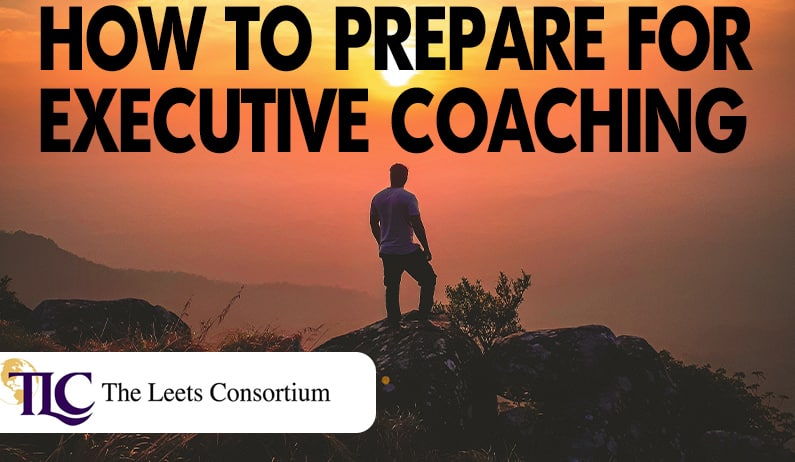How To Prepare For Executive Coaching For Maximum Results
Business Coaching, Executives | Feb 22, 2021

You’ve set up your first appointment with an executive coach. Now all that’s left to do is prepare for your session. What kinds of materials do you need to ensure that an executive or corporate coaching program goes well?
When you meet with an executive coach, you should ensure that you’re taking the steps necessary to better your business. To do so, you need to bring more to the table than just information about your business. That means preparing yourself to both self-analyze and consider your talent development.
What Should I Expect From an Executive Coach?
Executive coaches work to help you tend to the day-to-day events of your business and lead more effectively. Executive coaches also serve as partners to your business in the areas of:
- Talent development
- Leadership development
Consider this: Do you have a question about how you should go about achieving your goals as a business owner? Then you can look at businesses that have come before you to see how they’ve grown. However, for a proper outside perspective, you need to reach out to someone who:
- Knows what kind of field you’re working in
- Has the experience to help you identify future career goals and plan to achieve them
That’s what an executive coach does. During an executive coach session, you can’t expect them to solve all of your business’ problems for you. Instead, you can discuss what kind of assessment tools you need to bring to the game to better move forward with your development goals.
What Are Good Coaching Questions?
Executive coaching sessions are a two-way street. You’re entering a dialogue with a professional career coach, and you should prepare to bring forth any concerns as you do. With that said, these meetings are about more than venting about your business’s newest challenges.
Business leaders tend to reach out to executive coaches because they want to step outside of their comfort zones. Because of this, be prepared to ask questions that encourage personal growth. Some of the best questions you can ask an executive coach include:
- What outcome can we achieve together?
- What are your insights into this problem?
- What are your insights into the atmosphere of the company?
- What are the company’s next steps?
- How would you address this problem?
Note that all of these questions keep your business and growth as their subjects. Even as they do, however, they invite insight into behaviors that you may need to change to ensure your business thrives.
With that in mind, be sure to go into an executive coaching session with an open mind. These professionals don’t work to insult you, but rather to ensure that you and your business have the leadership skills you need to move forward in your industry.
What is the Best Executive Coaching Quality?
There are a plethora of skills that a talented executive coach can and should bring to the table. After all, an executive coach needs to guide you through the challenges that may plague your business. This means they need to have leadership skill that they can:
- Display during your coaching session
- Teach you as well
Of all of the skills you can learn from a career coach, emotional intelligence is among the most important. Emotional intelligence allows you to better connect with your employees, clients, and industry peers. It enables you to understand how these parties are feeling and respond to those feelings with empathy, as well as with business sense. Moreover, it can get you into the mindset of a client. This, in turn, allows you to better craft your advertisements, so they reach the audience that you want to connect with.
Learning how to be more emotionally intelligent is a lengthy process. It requires a lot of observation, self awareness and practice. Over time and career coaching sessions, though, you can assess your strengths and weaknesses, all the while determining what kind of tools you need to better connect with the people relying on you.
Preparing for The Best Results
While their careers are similar, executive coaches are not consultants. Instead, executive coaches work to ensure that you have the tools you need to solve your business’s problems on your own later down the line.
With that in mind, you need to come to an executive coaching experience with a plan in mind. Both during and after your coaching session, be prepared to:
- Remain open-minded when it comes to criticism and feedback.
- Step outside of your comfort zone while discussing your career goals, as well as the goals for your business.
- Build new career goals that may better fit your skillset or your industry.
- Honestly consider your weaknesses and how best to compensate for them.
- Establish an action plan meant to propel you forward within your field.
Connecting With an Area Executive Coach
When you start searching for a professional mentor, you should be confident in working with someone who understands the complexities of both your industry and your location. Area executive coaches can help you with:
- The generics of building up your business
- The specific practice of reaching out to a local audience
To better find your ideal professional sounding board, reach out to the team at Leets Consortium. With access to a vast catalogue of career coaches, you can connect with a representative in your area and begin scheduling your consultations.
Before you know it, you’ll have access to the assessment tools you need to elevate your business practices beyond the artificial limitations of your industry.
Subscribe to our Newsletter:
Receive leadership and professional development insights straight to your inbox
How can we support your success?
We’d love to get to know you and learn more about your organization’s leadership development initiatives.

